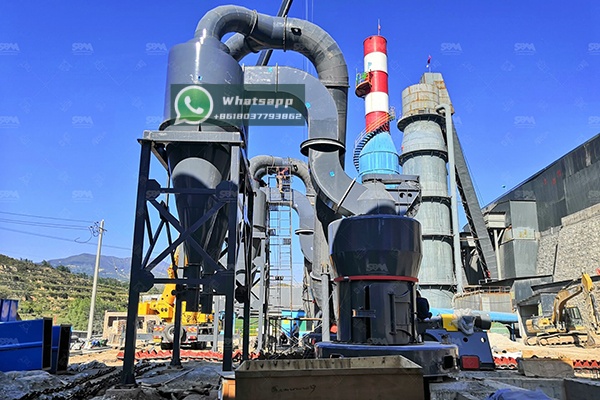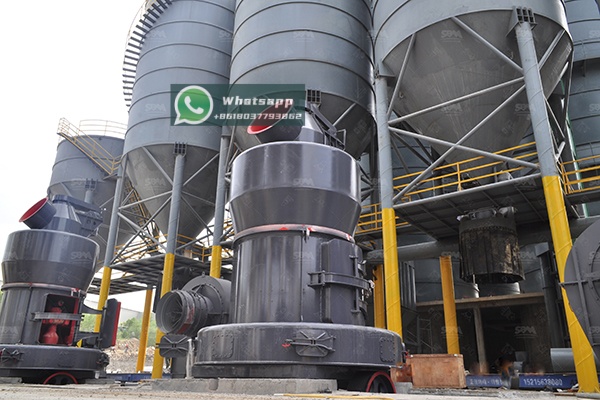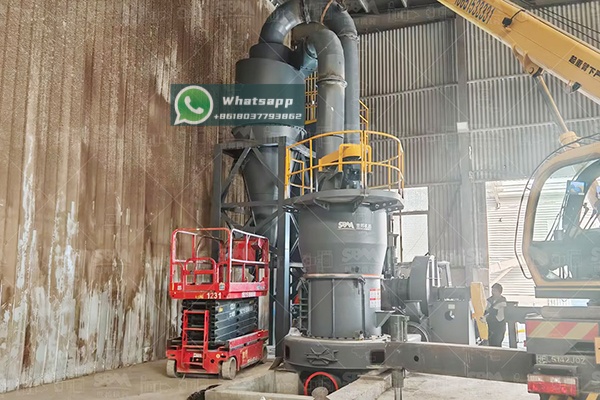The ceramics industry is a cornerstone of modern manufacturing, producing everything from delicate tableware to advanced technical components. At the heart of this industry lies the processing of raw materials, with feldspar standing as one of the most critical ingredients. As a key fluxing agent, feldspar lowers the melting temperature of ceramic mixtures, promotes vitrification, and enhances the strength and durability of the final product. The efficiency and quality of ceramic production are therefore intrinsically linked to the technology used to grind feldspar into a fine, consistent powder. European-designed mill technology, renowned for its precision, energy efficiency, and automation, has set the global standard for this crucial process. This article explores the role of advanced European-style grinding mills in optimizing feldspar processing for the ceramics sector and highlights key equipment from a leading manufacturer.
Feldspar minerals, primarily comprising aluminosilicates of potassium, sodium, and calcium, are indispensable in ceramic body and glaze formulations. Their primary function is to act as a flux, which melts at kiln temperatures and binds the other constituents—like silica and clay—together, forming a glassy phase that gives the ceramic body its rigidity and impermeability. The quality of the final ceramic product is heavily dependent on the particle size distribution, purity, and consistency of the ground feldspar. Ultra-fine and uniformly sized feldspar powder ensures a more reactive mix, leading to a denser, stronger ceramic body with a superior surface finish. Any inconsistency in grind size can result in defects such as pinholes, warping, or reduced mechanical strength. Therefore, selecting the right milling technology is not merely a matter of production capacity but a fundamental decision impacting product quality and manufacturing economics.

The trajectory of grinding mill technology has been significantly shaped by European engineering, which emphasizes high efficiency, low energy consumption, and minimal environmental impact. The transition from traditional ball mills to more sophisticated vertical roller mills, trapezium mills, and ultrafine grinding systems represents this evolution. European designs often integrate multiple processes—such as grinding, drying, classifying, and conveying—into a single, compact unit. This integrated approach reduces the plant’s footprint, simplifies the process flow, and lowers overall energy consumption. Furthermore, the adoption of advanced dynamic classifiers allows for precise control over particle size distribution, a critical factor for ceramic applications. The drive towards automation and digitalization, hallmarks of modern European industrial equipment, ensures consistent product quality and operational reliability, making these mills the preferred choice for high-end ceramic production facilities worldwide.
While the design principles are European, the manufacturing and implementation of this technology are truly global. Shanghai Zenith Machinery Co., Ltd. stands as a prime example of a manufacturer that has successfully absorbed and advanced this technology. Specializing in the research, development, and production of industrial crushing and grinding equipment, Zenith has established itself as a leader in the field of ultra-fine powder processing. Their extensive product portfolio is designed to meet the rigorous demands of modern industries, including ceramics. By incorporating European design concepts and continuous innovation, Zenith’s grinding mills offer performance and reliability that are on par with international standards, providing a cost-effective solution for ceramic producers aiming to achieve excellence in feldspar processing.
For ceramic producers seeking an optimal balance between capacity, fineness, and operational cost for feldspar grinding, the MTW Trapezium Grinding Mill from Zenith is an exemplary choice. This mill embodies European technological features with its multiple national patents, efficient planetary gearbox, and curvilinear design that reduces air flow resistance and increases grinding efficiency.
The MTW series is particularly well-suited for processing non-metallic minerals like feldspar. Its advanced grinding roller and ring design ensure a longer service life for wear parts and a more consistent output. The integrated classifier allows for precise adjustment of the final product fineness, which is crucial for meeting the specific requirements of different ceramic bodies and glazes. Furthermore, the mill’s system is designed to be environmentally friendly, with efficient pulse dust collection and low noise levels.
| Model | Max. Feed Size (mm) | Final Size (mm) | Capacity (t/h) | Main Motor (kW) |
|---|---|---|---|---|
| MTW110 | <30 | 1.6-0.045 | 3-9 | 55 |
| MTW138Z | <35 | 1.6-0.045 | 6-17 | 90 |
| MTW175G | <40 | 1.6-0.045 | 9.5-25 | 160 |
| MTW215G | <50 | 1.6-0.045 | 15-45 | 280 |
For a ceramic plant with medium to large production needs, the MTW215G model offers an impressive capacity of up to 45 tons per hour, capable of producing feldspar powder fine enough for even the most demanding glaze applications.

For applications demanding exceptionally fine and high-purity feldspar powder—such as in advanced electronic ceramics or high-gloss sanitaryware glazes—the LUM Ultrafine Vertical Mill is Zenith’s flagship solution. This mill represents the cutting edge of grinding technology, integrating superfine grinding, powder selection, and drying into one highly efficient unit.
Its standout feature is the ability to achieve a precise and narrow particle size distribution (D97 from 5 to 30 microns) with high efficiency and lower energy consumption compared to traditional methods. The use of roller technology and an advanced material bed grinding principle minimizes wear and metal contamination, ensuring the purity of the feldspar product. The intelligent automatic control system allows for remote monitoring and adjustment, ensuring stable and consistent quality with minimal human intervention.
The pursuit of perfection in the ceramics industry begins with the perfect grind. European-inspired mill technology provides the necessary tools to achieve this, offering unparalleled control over particle size, efficiency, and operational sustainability. Manufacturers like Shanghai Zenith Machinery Co., Ltd. have made this technology accessible and reliable through products like the MTW Trapezium Mill and the LUM Ultrafine Vertical Mill. By investing in such advanced grinding solutions, ceramic producers can significantly enhance their product quality, reduce production costs, and strengthen their competitive edge in the global market. The future of ceramics manufacturing is precise, efficient, and fine—and it is built on the foundation of superior grinding technology.
